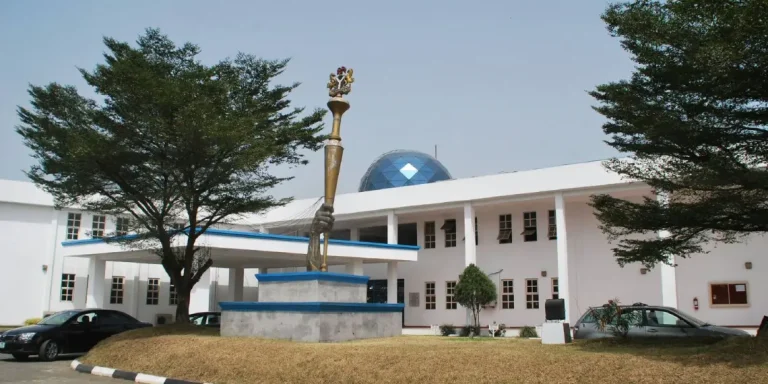The Enugu State Government has signed a N100 billion deal with Pragmatic Palms Limited to resuscitate the moribund United Palm Products Limited in Enugu State.
United Palm Products Ltd was set up by the state government to plant palm trees and engage in production of palm products such as palm oil and kernel, among others.
The firm is an offshoot of the now defunct Agricultural development Corporation established in 1970 by the then Eastern region government led by the then premier Michael Okpara.
However, the United Palm Products Ltd has remained moribund as efforts by successive administrations in the state to revive it were unsuccessful.
The N100 billion deal
The Enugu State Government, on Friday, signed the deal which will enable the Pragmatic Palms Limited to take over the moribund palm company temporarily.
The state government did not give details of the deal.
Speaking during the signing of agreement at the Government House Enugu, Governor Peter Mbah of Enugu State said the move was in line with his administration’s determination to grow the state’s economy from $4.4 billion to $30 billion.
Mr Mbah assured the investing firm that his government would play its own part of the agreement.
“This is a moment we must all be very proud of because it represents a major leap in our quest towards the revival of our dormant assets in line with our vision and the promises we made to our people.
“This investment outlay of over N100 billion is very significant because we also see agriculture beyond food security. We see agriculture as business,” he said.
Continuing, the governor said: “I want to assure you that the government you are dealing with is business-facing, and given my background as an entrepreneur, we understand what it means to have the ease of doing business.
“So, we are going to ensure that this is going to be an experience that you will use as a reference point. We will be very responsive, and we are going to make sure that this partnership works for the benefit of the company and also that of Enugu State. So, what we are doing here today will mark the beginning of great things ahead.”
Speaking to reporters on the development, the Enugu State Commissioner for Trade, Investment and Industry, Adaora Chukwu, described the partnership as a milestone, saying it would benefit the state greatly.
Ms Chukwu said the partnership was in line with the administration’s plan to revive non-operational assets in the state.
She said the partnership signalled a “partial handover” of the UPPL to the Pragmatic Palm Limited.
“The economic significance of what we did today is huge: The number of jobs it will create, the multiplier effects in terms of increasing production in the oil palm industry. You know that oil palm is an export commodity.
“We are not talking about the forex earnings into the state and also the building of capacity in-house, technology transfer, as well as skills and knowledge transfer to the people of Enugu State,” she said.
Also speaking, the Managing Director and Chief Executive Officer of the Pragmatic Palms Limited, George Nwangwu, said palm products are in high demand.
Mr Nwangwu stressed that the United Palm Products Ltd was capable of kick-starting the economic transformation of Enugu State.
“We have to realise that agriculture is a business. We are going to bring in a lot of equipment, and we are going to process the palm. Not just the palm, the palm kernel is an export commodity. If you go back and look at the biggest import over the years, palm is actually number five on the list. So, it is a significant product, and we tend to make sure we optimise its potential here,” he said.
Job opportunities
The United Palm Products Ltd’s three plantations in the state are located at Ugwuoba in Oji River Local Government Area, Akiyi, Umulokpa in Uzo-Uwani Local Government Area and Ibite Olo in Ezeagu Local Government Area.
Mr Nwangwu said the plantations can provide job opportunities to thousands of unemployed people in the state.
“Also, just to give you an example, to get the one at Oji River running, you are talking about close to 500 people because we need people to weed, to operate the plants and process it.
“So, you are also creating direct employment. If you put all these together, you can see that it runs into thousands of jobs,” he said.












 The remark made Tacha look at him with disdain; although, she had said nothing in response.
The remark made Tacha look at him with disdain; although, she had said nothing in response.



























